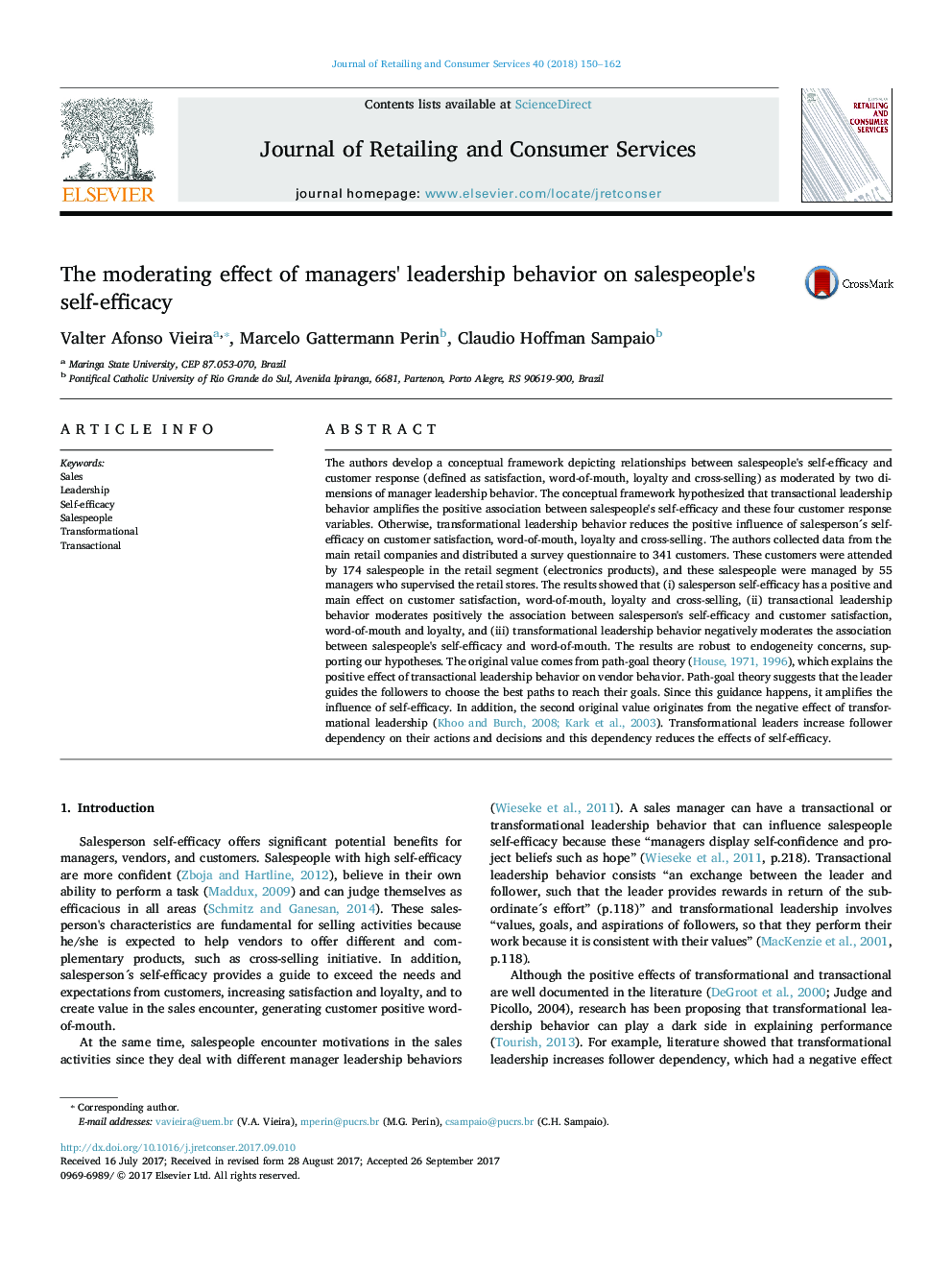| Article ID | Journal | Published Year | Pages | File Type |
|---|---|---|---|---|
| 7433630 | Journal of Retailing and Consumer Services | 2018 | 13 Pages |
Abstract
The authors develop a conceptual framework depicting relationships between salespeople's self-efficacy and customer response (defined as satisfaction, word-of-mouth, loyalty and cross-selling) as moderated by two dimensions of manager leadership behavior. The conceptual framework hypothesized that transactional leadership behavior amplifies the positive association between salespeople's self-efficacy and these four customer response variables. Otherwise, transformational leadership behavior reduces the positive influence of salesperson´s self-efficacy on customer satisfaction, word-of-mouth, loyalty and cross-selling. The authors collected data from the main retail companies and distributed a survey questionnaire to 341 customers. These customers were attended by 174 salespeople in the retail segment (electronics products), and these salespeople were managed by 55 managers who supervised the retail stores. The results showed that (i) salesperson self-efficacy has a positive and main effect on customer satisfaction, word-of-mouth, loyalty and cross-selling, (ii) transactional leadership behavior moderates positively the association between salesperson's self-efficacy and customer satisfaction, word-of-mouth and loyalty, and (iii) transformational leadership behavior negatively moderates the association between salespeople's self-efficacy and word-of-mouth. The results are robust to endogeneity concerns, supporting our hypotheses. The original value comes from path-goal theory (House, 1971, House, 1996), which explains the positive effect of transactional leadership behavior on vendor behavior. Path-goal theory suggests that the leader guides the followers to choose the best paths to reach their goals. Since this guidance happens, it amplifies the influence of self-efficacy. In addition, the second original value originates from the negative effect of transformational leadership (Kark et al., 2003, Khoo and Burch, 2008). Transformational leaders increase follower dependency on their actions and decisions and this dependency reduces the effects of self-efficacy.
Related Topics
Social Sciences and Humanities
Business, Management and Accounting
Marketing
Authors
Valter Afonso Vieira, Marcelo Gattermann Perin, Claudio Hoffmann Sampaio,
